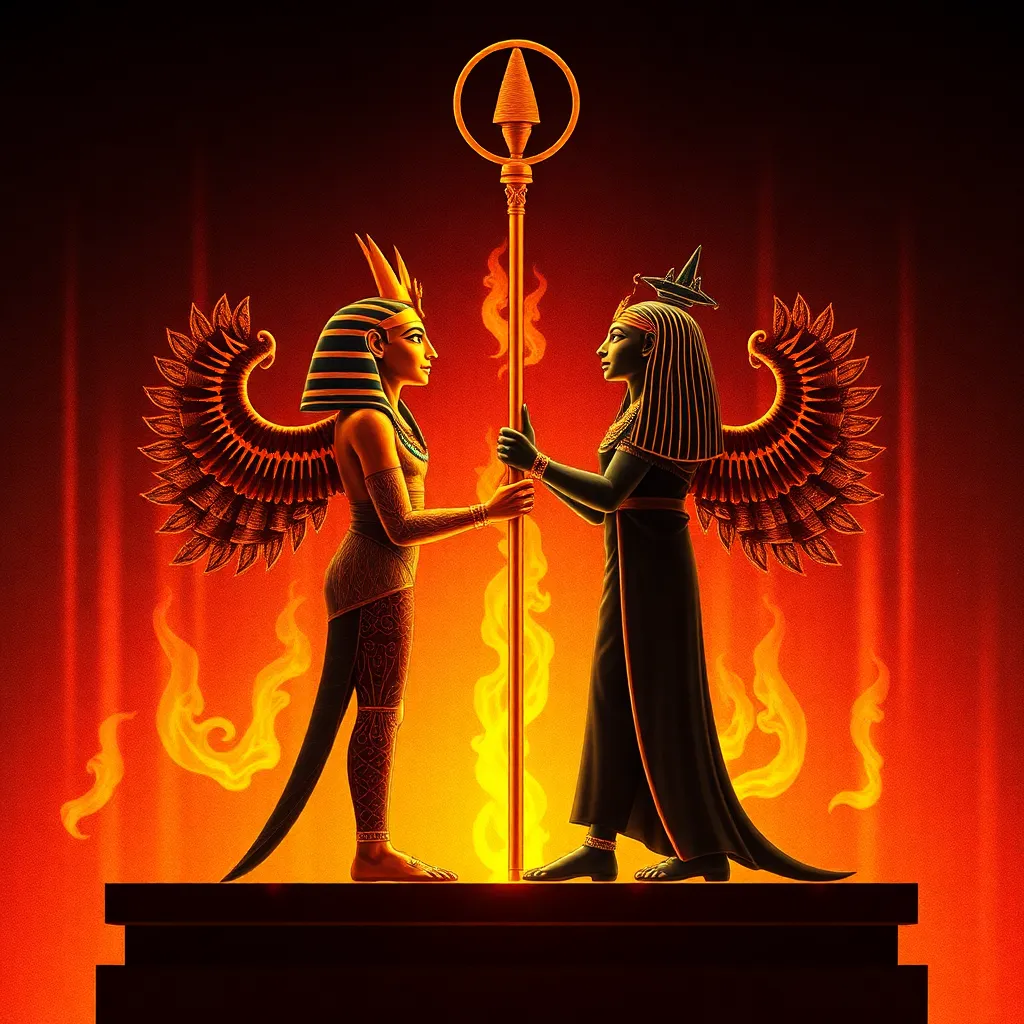Heka and the Concept of Duality in Egyptian Philosophy
I. Introduction to Heka
Heka, in ancient Egyptian culture, embodies the vital force of magic and is considered a fundamental aspect of the universe. The term itself translates to ‘magic’ or ‘power,’ indicating its significance in both everyday life and religious practices. As a deity, Heka is often depicted as a powerful figure who oversees the magical arts, while as a concept, it represents the inherent magical essence that permeates all aspects of existence.
This article aims to explore Heka’s role in understanding duality in Egyptian philosophy, delving into how this duality shapes the Egyptian worldview and influences their spiritual and material practices.
II. The Nature of Duality in Egyptian Thought
Duality is a fundamental principle in Egyptian philosophy, manifesting in various forms throughout their mythology and cosmology. Egyptians viewed the world as a balance of opposites, where each element complements the other. This duality can be seen in various deities and concepts:
- Osiris and Set: Representing life and death, order and chaos.
- Ma’at and Isfet: Symbolizing truth and justice versus chaos and disorder.
The implications of duality in Egyptian thought are profound. It reflects a worldview where harmony is achieved through the balance of opposing forces, leading to a deeper understanding of the universe’s complexities.
III. Heka as a Bridge Between the Spiritual and Material Worlds
Heka plays a crucial role in the creation and maintenance of the universe, acting as a bridge that connects the spiritual and material realms. In this capacity, Heka is seen as:
- A force that initiates creation through the spoken word, illustrating the power of language and intent.
- A mediator between the gods and humans, facilitating communication and interaction.
The interplay of magic and reality is a vital aspect of Heka’s influence, where the magical acts can alter the material world, highlighting the interconnectedness of existence.
IV. The Duality of Heka: Power and Responsibility
The dual nature of Heka is evident as both a force of creation and destruction. This duality raises moral implications regarding the use of Heka:
- Power: Heka enables individuals to harness magical forces for beneficial purposes, such as healing or protection.
- Responsibility: Misuse of Heka for harmful intentions can lead to chaos and destruction, reflecting the necessity of moral integrity.
Historically, Heka’s dual application can be witnessed in ancient rituals where practitioners sought to invoke its power for both safeguarding and destruction, reflecting the careful balance that must be maintained.
V. Heka in Egyptian Rituals and Practices
The invocation of Heka’s power is central to many Egyptian rituals and practices. These rituals often include:
- Spells and Incantations: Words of power are spoken to channel Heka, emphasizing the importance of language in magical practice.
- Ritual Offerings: Objects and offerings are presented to deities to gain favor and invoke Heka’s protective qualities.
Duality is reflected in these practices as well; rituals often seek to balance opposing forces, such as health and illness, joy and sorrow, acknowledging the complexity of life.
VI. Philosophical Interpretations of Heka and Duality
Ancient texts discussing Heka and its relationship with duality provide rich insights into Egyptian thought. Notable Egyptian philosophers and scholars, such as:
- Ptahhotep, known for his wisdom literature.
- Imhotep, regarded as a sage and healer.
These thinkers have explored the implications of Heka in their writings, influencing later philosophical thought during the Hellenistic period. Their interpretations reveal a continuity of thought regarding the balance of forces in the universe.
VII. Contemporary Relevance of Heka and Duality
Heka’s influence extends into modern spiritual practices and beliefs. Many contemporary practitioners of magic and spirituality draw upon the principles of Heka, recognizing its enduring legacy:
- Incorporating ancient Egyptian rituals into modern spiritual frameworks.
- Exploring the concept of duality in current philosophical discussions, particularly in ethics and morality.
Understanding Heka enriches modern discourse around duality, offering a historical context that emphasizes the complexities of existence and the balance required in life.
VIII. Conclusion
In summary, Heka serves as a vital concept in understanding duality within ancient Egyptian philosophy. Its significance as both a deity and a magical force highlights the importance of balance between opposing forces in life. The exploration of Heka allows for a deeper comprehension of the interconnectedness of magic, philosophy, and spirituality in ancient contexts.
As we reflect on the importance of Heka and duality, we are encouraged to further explore the rich intersections of these themes in historical and contemporary discussions, recognizing the relevance they hold in our understanding of the world today.




